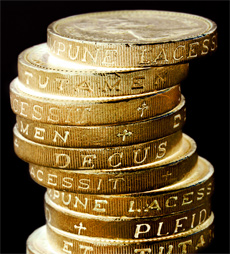The Emergency Budget
 The new Chancellor delivered the promised post-election pain.
The new Chancellor delivered the promised post-election pain.
In the fortnight before the Emergency Budget, there were plenty of warnings about the period of austerity and the pain that the country faced. In retrospect, the warnings of gloom and doom were not overdone, at least when a long term view of the measures is taken. There was some immediate tax pain, but much of it was deferred:
VAT The standard rate of VAT will rise to 20% from 4 January 2011, the first working day of the new year.
Capital Gains Tax (CGT) The CGT regime became more complicated following the Budget. Now for gains made after 22 June 2010, only basic rate taxpayers will pay CGT at 18%. Everyone else will pay 28%, although a 10% rate will still apply where the disposal qualifies for entrepreneurs’ relief.
Business Tax The main corporation tax rate will fall by 1% to 27% from 1 April 2011, further reducing to a 24% rate in April 2014. The small profits rate (formerly small companies’ rate) will be cut by 1% to 20% from 1 April 2011. However, the annual investment allowance will fall from £100,000 to £25,000 from 1 April 2012.
Personal allowance and tax bands The personal allowance will rise by £1,000 in 2011/12 to £7,475, but higher rate taxpayers will not benefit because the starting point for 40% tax will be reduced by about £1,500 to claw back the potential tax saving. The starting point for higher rate tax will remain frozen for 2012/13 and then the basic rate band will be frozen for 2013/14.
National Insurance Contributions (NICs) The planned 1% rise to all the main NICs rates will go ahead for 2011/12. However, the secondary (employer) Class 1 threshold will rise by £21 a week above indexation. The impact of the rise on employees will be limited by increasing the primary threshold by about £25 a week above indexation. The upper earnings/profits limit, above which the NICs rate will be 2%, will fall by about £1,500, matching the drop in the higher rate tax starting point.
Pension contribution tax relief The good news is that the Chancellor abandoned the much-criticised ‘high income excess relief charge’ provisions, which were due to be introduced from 6 April 2011. The bad news is that there will be new restrictions on the amount of pension contribution tax relief. These are set to take the form of a reduction in the annual allowance limit from £255,000 to £30,000–£45,000.
As a result of this proposal, 2010/11 may be the last tax year that you could benefit from full tax relief on a substantial pension contribution.
Pension annuitisation The effective requirement to buy an annuity by age 75 is to be scrapped from 6 April 2011, with interim measures in place now for those who reach age 75 on or after 22 June 2010. The Treasury has made it clear that the changes ‘should not incur Exchequer cost and should not create any opportunities for tax avoidance’.